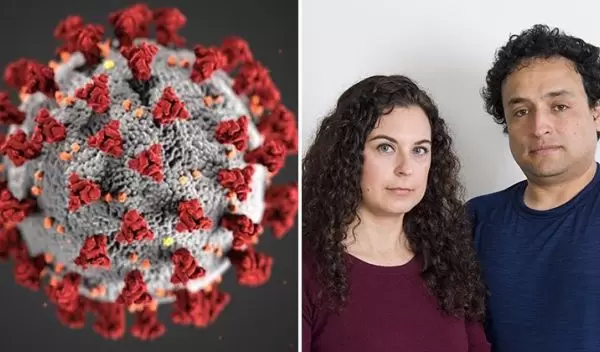
Biologists using supercomputer simulations to analyze the coronavirus
Two University of Delaware researchers have been awarded a National Science Foundation grant to study the novel coronavirus that causes COVID-19. They're using the kinds of high-tech supercomputing tools that previously led them to new insights into other viruses, such as those that cause AIDS and Hepatitis B.
Juan Perilla and Jodi Hadden-Perilla were funded through NSF's Rapid Response Research (RAPID) program.
The researchers will use computer simulations to analyze the molecular structure of the virus that has led to the current pandemic. Learning more about the structure "is essential to understanding viral entry into and infection of human cells, a first step in developing novel drugs and vaccines to combat the disease,” Perilla and Hadden-Perilla said.
"If you understand how something works, you can understand how to make it stop working," Hadden-Perilla said of the need to analyze how the virus functions and how it infects people. "We need to know the atomic structure so researchers can determine ways to target it as they work to develop treatments and vaccines."
Using an infrastructure that connects them to their lab computers and supercomputing resources, the researchers are focusing on using supercomputers to perform molecular simulations at the atomic level.
These simulations allow scientists to study the way molecules move to learn how they carry out their functions. Computer simulations are the only method that can reveal the motion of molecular systems down to the atomic level; they're sometimes referred to as "computational microscopes."
Viruses aren't static, Perilla noted, so simulations of the coronavirus are key to understanding its components and functions.
Perilla and Hadden-Perilla said their team's work could have an immediate impact on the pandemic. To enhance that potential, the researchers plan to disseminate their results "broadly and quickly," estimating that they could have the basics of their model -- a first step in the process -- in place within a few weeks.
